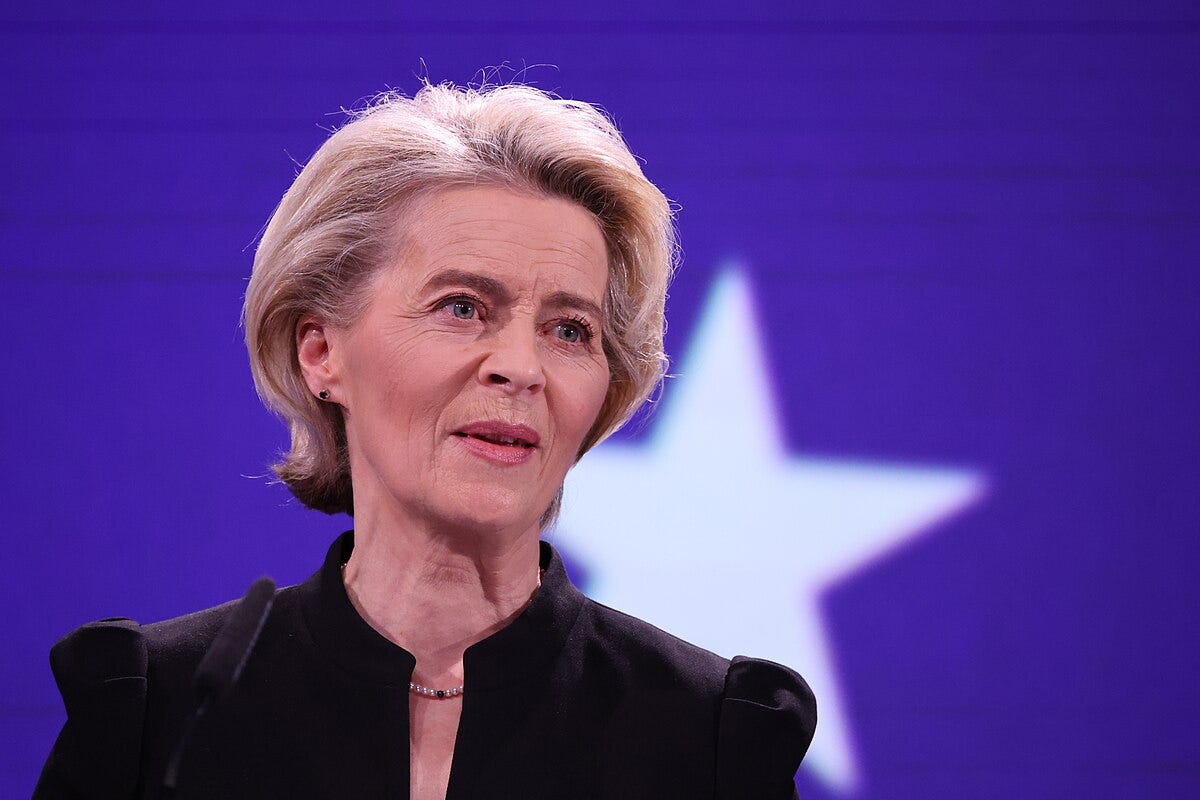News Round-Up: US Highlights Human Rights and Free Speech Issues in UK, Germany, and EU Targets Media Freedom
Every week, the editorial team of Freedom Research compiles a round-up of news that caught our eye, or what felt like under-reported aspects of news deserving more attention.
Over the past week, the following topics attracted our attention:
US State Department: UK faces human rights crisis.
US State Department: Germany restricts freedom of expression.
EU Media Freedom Act could restrict freedoms and permit journalist arrests.
Record number of gang rape suspects in Germany in 2024.
Russia restricts calls on Telegram, WhatsApp.
U.S. State Department: UK faces human rights crisis
An official new dossier from the US State Department on Britain’s civil liberties warns that the UK’s human rights situation has “worsened during the year,” amid “serious restrictions on freedom of expression”, Express reports. The report highlights the UK government calling on companies, including US social media firms, “to censor speech deemed misinformation or ‘hate speech’”. It also flags widespread claims of a “two-tier” justice system in Britain following Axel Rudakubana’s murder spree last August, when ordinary people were jailed for expressing their anger with immigration online. The report brands the Starmer government’s crackdown on online speech as “an especially grievous example of government censorship, censorship of ordinary Britons.”
Also under fire are the so-called “public spaces protection orders”, which allow councils to limit free speech rights within designated areas, such as abortion clinics. It adds: “These restrictions on freedom of speech could include prohibitions on efforts to influence others when inside a restricted area, even through prayer or silent protests.”

The Online Safety Act, which came into force this summer and forces adults to verify their ages to access certain websites, also comes under fire over the threat to ban the encryption of websites, which therefore threatens user privacy.
The report lashes out at levels of antisemitism in Britain, warning that since Hamas’ October 2023 attack, there has been a “large increase in antisemitic incidents across the UK.” It adds: “On January 29, a potentially lethal antisemitic attack was averted in London by employees of a kosher store, who fended off a knife-wielding attacker. On February 12, a Jewish chaplain for universities in the Yorkshire area and his family were subjected to death threats and harassment after a campaign was launched to oust him from his position because of his Israeli Defense Force service during the Israel-Hamas War. The chaplain and his family were forced to go into hiding because of the campaign.”
The report concludes that there is a “significant human rights issue” in Britain, with “serious restrictions on freedom of expression, including enforcement of or threat of criminal or civil laws in order to limit expression; and crimes, violence, or threats of violence motivated by antisemitism.”
It adds that the government has been “inconsistent” in dealing with officials who have committed human rights abuses, including crackdowns on freedom of speech and expression.
US State Department: Germany restricts freedom of expression
Germany’s human rights record has worsened over the past year, according to the US State Department report that cites curbs on freedom of expression and rising antisemitic incidents, The European Conservative writes. The report lists “restrictions on freedom of expression” and antisemitic violence as “significant human rights problems”. It criticises German regulations requiring online platforms to remove hate speech, describing such measures as a form of “censorship”. It also faults German authorities for focusing their antisemitism efforts mainly on right-wing extremist groups while downplaying the role of antisemitic activity among immigrant Muslim communities.
The German government has dismissed the report and issued a statement denying all allegations of violating free speech and claiming the government is combating antisemitism “in all its forms.” Government spokesman Steffen Meyer (SPD) rejected the notion that free expression is limited to certain political factions, calling the US assertion “unfounded.”
However, there are several stories about German politicians, predominantly left-wing progressives, reporting ordinary citizens and calling authorities on them for writing “hateful” comments on the internet about them. One 64-year-old man had his home raided and was fined €825 for retweeting a meme that called then-Economy Minister Robert Habeck a “professional moron.” Surveys suggest growing public unease, with half of Germans believing they can no longer voice opinions freely without repercussions.
EU Media Freedom Act could restrict freedoms and permit journalist arrests
The European Union’s “European Media Freedom Act” became binding law across all member states on August 8, but behind its name lies a set of provisions that could restrict the very freedoms it claims to safeguard, Reclaim The Net writes.
Alongside language about protecting reporters, the regulation authorizes arrests, sanctions, and surveillance of journalists whenever authorities say it serves an “overriding reason in the general interest.” Although the law outlines protections such as prohibiting spyware or coercion to expose sources, those assurances are undercut by built-in loopholes. Governments can bypass them if their actions are allowed under national or EU law and deemed proportionate to a vaguely defined “general interest.” That permission extends to intrusive surveillance technologies in cases tied to crimes carrying a maximum prison term of three years or more, a list that ranges from terrorism and human trafficking to offenses labeled as “racism and xenophobia.” The legislation also orders each country to maintain registers of media owners and addresses. It targets so-called “disinformation,” accusing some media outlets of manipulating the single market to spread falsehoods.

Another element of the act involves pushing “trustworthy media” and reinforcing state broadcasters through transparent appointment processes and stable public funding. Annual gatherings between EU officials, internet companies, media representatives, and NGOs are encouraged to assess how disinformation initiatives are being carried out.
It also blames large online platforms for fueling polarization and confronts this with tighter cooperation between national regulators, overseen by a European Media Services Board made up of member state regulators and a Commission representative. Although labeled independent, the board’s secretariat is run by the Commission, giving it an inside track on the decision-making process.
Record number of gang rape suspects in Germany in 2024
The German government has released figures showing that 2024 saw the highest number of gang rape suspects ever recorded, with a dramatic rise in cases involving foreign nationals, Remix News reports.
According to an official response to a parliamentary question by Alternative for Germany (AfD) MP Stephan Brandner, authorities registered 1,011 suspects in connection with gang rapes during the 2024 reporting year, an increase from the previous year, which saw 990 suspects. 51% of those identified as suspects in gang rape cases were foreign nationals. The five most frequently cited national origins among the suspects have remained consistent since 2022: Germany, Syria, Afghanistan, Iraq, and Turkey. The data for “Germans,” however, is distorted due to the fact that naturalized foreign-born individuals are classed as German for the purposes of crime data in the country. Therefore, the number of foreign-born suspects is likely to be far higher.
Russia restricts calls on Telegram, WhatsApp
Last Sunday, Russians across the country began reporting problems making voice and video calls via WhatsApp and Telegram. However, it was not immediately clear how widespread the disruptions were. On Wednesday, Russia’s state communications watchdog Roskomnadzor confirmed that it is restricting voice and video calls on WhatsApp and Telegram, describing it as an anti-fraud measure to protect citizens, The Moscow Times reports. “Calls on these foreign messaging platforms are partially restricted to counter criminal activity,” the state-run news agency TASS quoted Roskomnadzor as saying in a statement. “Nearly all such fraudulent calls have shifted to foreign messengers, which refuse to ensure the safety of Russian users.”
According to the state watchdog, WhatsApp and Telegram have become the primary channels for call-based scams, extortion, and recruitment into acts of terrorism and sabotage over the past year. No other functions of these apps were limited at this time, Roskomnadzor stated.
WhatsApp is used daily by more than two-thirds of Russians, while Telegram, besides offering instant messaging, is a popular source of news and information.
On Wednesday, State Duma lawmaker Anton Nemkin accused both platforms of ignoring Russian laws “for many years,” including failing to remove banned content, and said fraud cases on WhatsApp alone rose 250% in 2024.
A spokesperson for WhatsApp later suggested in a statement that Russian government restrictions on the platform were politically motivated.


